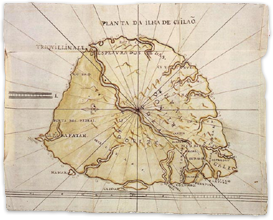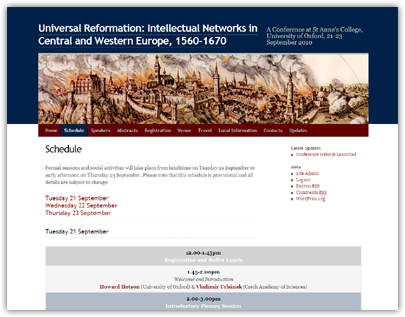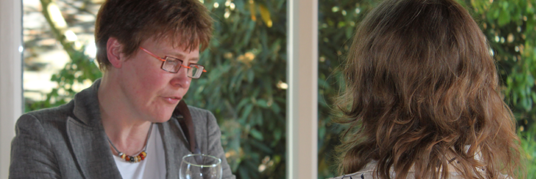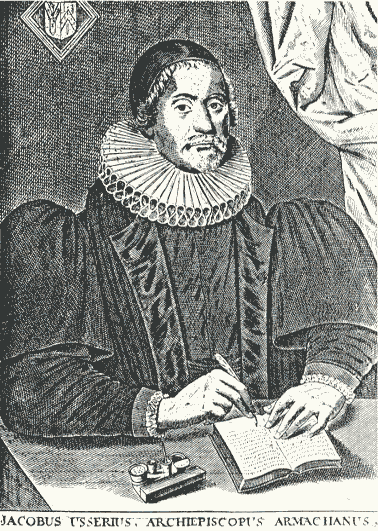* You are viewing Posts Tagged ‘Religion’
 Further to the spatial excitements of our own recent gathering, a one-day conference on Imaginative Geographies: Travels of the Mind in Early Modern Europe will take place at the University of Bristol on Wednesday 28 September 2011. According to the organisers, the event will ‘explore correspondences between geography [and] literary and historical fields of research, to enable varied… cross-disciplinary discourses between scholars and students of the arts and sciences, and to enrich renaissance and early modern research with methodological and thematic diversity’. Panels are devoted to spiritual geographies, cartographic spaces, mapping the other, and mapping the familiar. For the full programme and to sign up please visit the conference website.
Further to the spatial excitements of our own recent gathering, a one-day conference on Imaginative Geographies: Travels of the Mind in Early Modern Europe will take place at the University of Bristol on Wednesday 28 September 2011. According to the organisers, the event will ‘explore correspondences between geography [and] literary and historical fields of research, to enable varied… cross-disciplinary discourses between scholars and students of the arts and sciences, and to enrich renaissance and early modern research with methodological and thematic diversity’. Panels are devoted to spiritual geographies, cartographic spaces, mapping the other, and mapping the familiar. For the full programme and to sign up please visit the conference website.
James Brown
June 09, 2011
Events, Lectures, Project Updates
Tags: Archives, Communication, England, Materiality, Networks, Politics, Religion, Scribal Copies, Seventeenth Century, Sixteenth Century
 In the fifth paper of our seminar series on Thursday 2 June, Professor James Daybell (University of Plymouth) delivered a fascinating paper entitled ‘The Scribal Circulation of Early Modern Letters’. Debuting material from his forthcoming book on the materiality of the letter, and in a slight change from the advertised title, Daybell provided a sophisticated overview of the ‘complex textual afterlives’ of letters beyond their initial composition, sending, and receipt; a conceptualization which challenges prevailing views of early modern epistolarity as a private, historically anchored exchange between only two individuals. By means of a rich range of political and religious examples from early modern England, Daybell traced several consecutive phases of subsequent manuscript dissemination: the controlled circulation of epistolary separates through private copying within discrete manuscript networks; a less discriminate casting abroad; commercial scribal publication within anthologies and miscellanies (in which copies of letters co-mingled with verse, libels, prose, and other manuscript genres); and finally, in many cases, print publication. Daybell also provided insights into the postal conditions which facilitated scribal transmission in early modern England, a surprisingly makeshift mixture of different delivery methods (ordinary posts, royal posts, messengers, carriers, servants, and chance travellers) until the introduction of a more stable and predictable postal structure with the founding of the post office in 1635. Questions focussed on the role of London and the universities as entrepôts for scribal dissemination; the costs of delivery; the anxieties and self-censorship engendered by the instability and porosity of the early modern postal network; and the distinction between ordinary street copies and scribal separates produced by commercial scriptoria. Seminars take place in the Faculty of History on George Street on Thursdays at 3pm. For future talks in the series, please see the seminar webpage.
In the fifth paper of our seminar series on Thursday 2 June, Professor James Daybell (University of Plymouth) delivered a fascinating paper entitled ‘The Scribal Circulation of Early Modern Letters’. Debuting material from his forthcoming book on the materiality of the letter, and in a slight change from the advertised title, Daybell provided a sophisticated overview of the ‘complex textual afterlives’ of letters beyond their initial composition, sending, and receipt; a conceptualization which challenges prevailing views of early modern epistolarity as a private, historically anchored exchange between only two individuals. By means of a rich range of political and religious examples from early modern England, Daybell traced several consecutive phases of subsequent manuscript dissemination: the controlled circulation of epistolary separates through private copying within discrete manuscript networks; a less discriminate casting abroad; commercial scribal publication within anthologies and miscellanies (in which copies of letters co-mingled with verse, libels, prose, and other manuscript genres); and finally, in many cases, print publication. Daybell also provided insights into the postal conditions which facilitated scribal transmission in early modern England, a surprisingly makeshift mixture of different delivery methods (ordinary posts, royal posts, messengers, carriers, servants, and chance travellers) until the introduction of a more stable and predictable postal structure with the founding of the post office in 1635. Questions focussed on the role of London and the universities as entrepôts for scribal dissemination; the costs of delivery; the anxieties and self-censorship engendered by the instability and porosity of the early modern postal network; and the distinction between ordinary street copies and scribal separates produced by commercial scriptoria. Seminars take place in the Faculty of History on George Street on Thursdays at 3pm. For future talks in the series, please see the seminar webpage.
 Podcast now available on the seminar page!
Podcast now available on the seminar page!
James Brown
July 16, 2010
Conferences and Workshops, Events, Project Updates
Tags: Communication, Encyclopaedism, Europe, Jan Amos Comenius, Networks, Pansophia, Politics, Religion, Samuel Hartlib, Seventeenth Century
 We are pleased to announce that booking is now open for ‘Universal Reformation: Intellectual Networks in Central and Western Europe, 1560-1670’, the first Project conference, which will take place at St Anne’s College, Oxford, on 21-23 September 2010. Organised by Howard Hotson and Vladimír Urbánek, the event will showcase the work of a diverse group of emerging and established scholars, many from east central Europe, who will converge on the intellectual networks and traditions engendered by the upheavals of the Thirty Years War. For provisional programme information, a steadily growing lists of speaker profiles and abstracts, and to book online, please see the new conference website. The deadline for registration is Friday 10 September.
We are pleased to announce that booking is now open for ‘Universal Reformation: Intellectual Networks in Central and Western Europe, 1560-1670’, the first Project conference, which will take place at St Anne’s College, Oxford, on 21-23 September 2010. Organised by Howard Hotson and Vladimír Urbánek, the event will showcase the work of a diverse group of emerging and established scholars, many from east central Europe, who will converge on the intellectual networks and traditions engendered by the upheavals of the Thirty Years War. For provisional programme information, a steadily growing lists of speaker profiles and abstracts, and to book online, please see the new conference website. The deadline for registration is Friday 10 September.
James Brown
June 09, 2010
Events, Lectures, Project Updates
Tags: Amsterdam, Antoinette Bourignon, Book History, Communication, Gender, Jan Amos Comenius, Low Countries, Networks, Religion, Seventeenth Century, Women

Discussions continue with Professor de Baar during the wine reception.
In the sixth installment of the Project’s seminar series on Thursday 3 June, Professor Mirjam de Baar (University of Groningen) described the epistolary practice and strategies of a seventeenth-century female prophet and mystic in a paper entitled ‘The Re-construction of a Spiritual Network: The Correspondence of Antoinette Bourignon (1616-1680)’. From her base in Amsterdam (where she purchased her own press in the late 1660s), Bourignon used a variety of textual media to disseminate the message that she was a spiritual leader – ‘The Mother’ – chosen by God to restore true Christianity on earth, and to consolidate a following around this ecumenical identity. Bourignon’s letters, argued de Baar, were central to this programme; over 600 manuscript versions survive (both originals and scribal copies), eleven different printed editions appeared during her lifetime, while nine further volumes were subsequently published posthumously. Her correspondents included luminaries such as Jan Amos Comenius (1592-1670), Robert Boyle (1627-1691), Jan Swammerdam (1637-80), and Pierre Poiret (1646-1719), as well as a wide range of socially diverse disciples who wrote to her seeking advice on a variety of spiritual and personal issues, and whose preoccupations and voices are anonymously reproduced in published responses. In consequence, her letters have a dialogic, polyphonous quality, while the same followers who wrote to her seeking guidance in turn represented an important market for the letters in their printed manifestations, suggesting a close relationship between epistolarity and the mechanics of early modern publishing, and the existence of a shrewd business model beneath the spiritual discourse (a point further underlined during subsequent discussion). Despite her failure to establish a long-term community on the island of Nordstrand, and the fact that in the later years of her life the suspicions of Lutheran clergy forced her into exile in Eastern Friesland, Bourignon maintained a prolific output of letters, and continued to combine the roles of spiritual leader, publisher of epistolary collections, and manager of what might be interpreted as a spiritually driven commercial enterprise. Seminars take place in the Faculty of History on George Street on Thursdays at 3pm. For future seminars in the series, please see here.
 Podcast now available on the seminar page!
Podcast now available on the seminar page!

James Ussher, Archbishop of Armagh and Primate of All Ireland (1581-1656). Wikimedia Commons.
In the second installment of the Project’s seminar series on Thursday 6 May, Dr Elizabethanne Boran (The Edward Worth Library, Dublin, and formerly The Ussher Project) provided another capacity audience with a detailed paper entitled ‘“Live and speak unto the Church, when you are dead”: The Correspondence of James Ussher (1581-1656) and Samuel Ward (1572-1643)’. Focusing on the letters exchanged between the Irish primate and the Master of Sidney Sussex College Cambridge from 1625 – a corpus of around 45 extant documents – Boran used the correspondence to shed fascinating light on the religious preoccupations and perspectives of the two scholars (the letters frequently cover church history, doctrinal controversies, religious radicals, and Arminianism), as well as their unequal personal dynamics (Ussher, the younger but more senior of the two, frequently adopts a superior tone). The paper also used the Ussher/Ward case study as the basis for many suggestive insights into the structure and functioning of correspondence networks more generally, in particular regarding the ‘temporal flow’ of the seventeenth-century Republic of Letters (the rhythm of which was heavily influenced by the seasons and the weather), the complex relationship between the content of correspondence and the itineraries of the senders and receivers as well as their opportunities for verbal forms of contact (letters sent during 1626, when both men were in close physical proximity, are generally ‘staccato’), and the extent to which epistolary networks were mapped onto and relied upon adjacent professional, social, and economic modes of exchange (in particular mercantile and friendship networks, and practices of academic visiting). Seminars take place in the Faculty of History on George Street on Thursdays at 3pm. For future seminars in the series, please see here.
 Further to the spatial excitements of our own recent gathering, a one-day conference on Imaginative Geographies: Travels of the Mind in Early Modern Europe will take place at the University of Bristol on Wednesday 28 September 2011. According to the organisers, the event will ‘explore correspondences between geography [and] literary and historical fields of research, to enable varied… cross-disciplinary discourses between scholars and students of the arts and sciences, and to enrich renaissance and early modern research with methodological and thematic diversity’. Panels are devoted to spiritual geographies, cartographic spaces, mapping the other, and mapping the familiar. For the full programme and to sign up please visit the conference website.
Further to the spatial excitements of our own recent gathering, a one-day conference on Imaginative Geographies: Travels of the Mind in Early Modern Europe will take place at the University of Bristol on Wednesday 28 September 2011. According to the organisers, the event will ‘explore correspondences between geography [and] literary and historical fields of research, to enable varied… cross-disciplinary discourses between scholars and students of the arts and sciences, and to enrich renaissance and early modern research with methodological and thematic diversity’. Panels are devoted to spiritual geographies, cartographic spaces, mapping the other, and mapping the familiar. For the full programme and to sign up please visit the conference website.
 In the fifth paper of our
In the fifth paper of our 



 Join
Join 